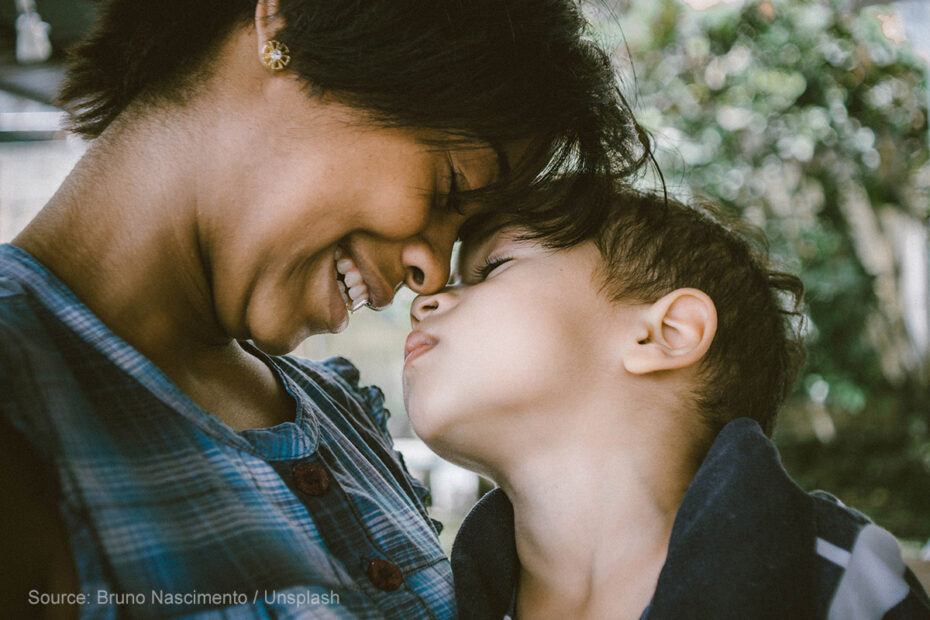Start with self-care to optimize the gift of time with those you love.
We social animals operate not in isolation but in the context of relationships with others—where emotions are contagious. Hunkered down during the pandemic as many of us are—some with three generations living under one roof—any stress engendered by existing family dynamics is compounded by the myriad health, social and economic challenges related to COVID-19.
This is layered atop the long-overdue reckoning of the seemingly intransigent racial and ethnic disparity within all of our systems, daily political crises, and the implications for parents of virtual schooling—particularly those of young children. With our sympathetic nervous systems in overdrive, how do we even think about focusing on “quality time”?
Before we can contemplate giving someone else our undivided attention, for that precious moment when we allow ourselves to simply let down and “be,” it’s necessary to start from a place of personal balance. As they say on airplanes, we must “put our own oxygen masks on first”! This means developing routines and setting boundaries in the context of the human need for:
1. Safety
2. Trust
3. Structure
4. Truth
5. Love
Nurture shapes nature, and the experiences we have—or don’t have—relating to these universal human requirements for thriving, map onto our unique genomes (roughly 20,000 genes) via epigenetics, and modify our…
- Response and reactivity to stress: Are we hearty dandelions or delicate orchids?
- Psychological make-up: Do we ruminate or move on?
- Personality traits: Introvert or extrovert?
…to produce mindsets, behavior, and a cascade of biochemical patterns that influence our health and well-being.
Bottom line: ALL OF US, regardless of age, benefit from routines and safe, consistent, supportive relationships, both which serve to foster resilience. Collectively, the new 3R’s provide a felt sense of being part of a cohesive unit whether one lives alone or at home with family. Collective efficacy, the social cohesion that fosters trust and builds solidarity, provides a sense of stability, safety, and willing collaboration, whether in our primary family or as part of our network of friends. When we feel safe, settled and grounded, engaging in quality time provides neurobiological fuel for our brains and bodies, and fosters memories that last a lifetime.
Self-Care Before Caring For Others:
The Basics:
- Get 7-9 hours of sleep per night.
- Exercise at least 30 minutes every day.
- Make healthy nutritional choices.
- Use breath work for grounding (the power of the pause!)
- Moderate your consumption of alcohol and non-essential medications.
Some Necessary Extras:
- Meditate.
- Practice gratitude and generosity.
- Prioritize time with people who fill your soul with sunshine and catalyze the neurobiological “upward spiral.”
- Target and re-adjust goals so that they are achievable.
- SHAKE UP your routines! Surprise yourself once a day.
- Be intentional about scheduling calming activities.
- BE GENTLE WITH YOURSELF. “Wholeness lies beyond perfection.”
Once we’ve recharged the batteries of our integrated mind-body-spirit, a landscape of possibilities to create beautiful micro- and macro-moments with those we love opens up.
Cultivating Quality Time With Others:
- While hugging our friends is either not possible or requires taking proper precautions, we can hug our family members. Physical touch is essential for human flourishing.
- Get out of your own head and into Mwe (Me+We), and help the others do the same (guide a simple meditation, engage in a conversation about mindfulness, perform a random act of kindness without expectation of anything in return).
- Get outdoors! Being in nature – especially walking and talking with friends and family – is restorative and healing.
- Make the most of family meals. Get everyone involved in planning and cooking (cleaning up too – play fun music, make a game out of it!), or making a stack of cards for table topics.
- Phones at the dinner table reduce connection and enjoyment. Put them in a “phone bowl” and place it out of eyesight.
- Encourage hearty, open and substantive conversation. Go around the table by age, or names alphabetically.
- Listen with your whole self.
- PLAY and be playful on a daily basis!!!
- Dance, sing and shake it up!
- Unbridled laughter is medicine… feel the happy endorphin wave roll through! Tell jokes or funny stories, though never at the expense of another.
- Play cards or board games, charades or Pictionary.
- Just “be” together in parallel activities (one reads, one knits, one writes a letter, or two people work on a puzzle).
Prioritize Human Being, Rather Than Human Doing
The strength of our community, our country, and our future world rests entirely with the rising generation. The values our children will carry forward, what they choose to fight for, and the habits, skills and mindsets they learn during this moment in history will inform what they share with THEIR children and grandchildren during quality time together, decades from now It will be the story of how this chapter in time shaped their hopes, their dreams, and who they became.
“The most valuable thing we can give each other is our attention –
especially when we give it from the heart.” -Rachel Remen
A version of this article was first published by Turnaround for Children on the 180 Blog.
